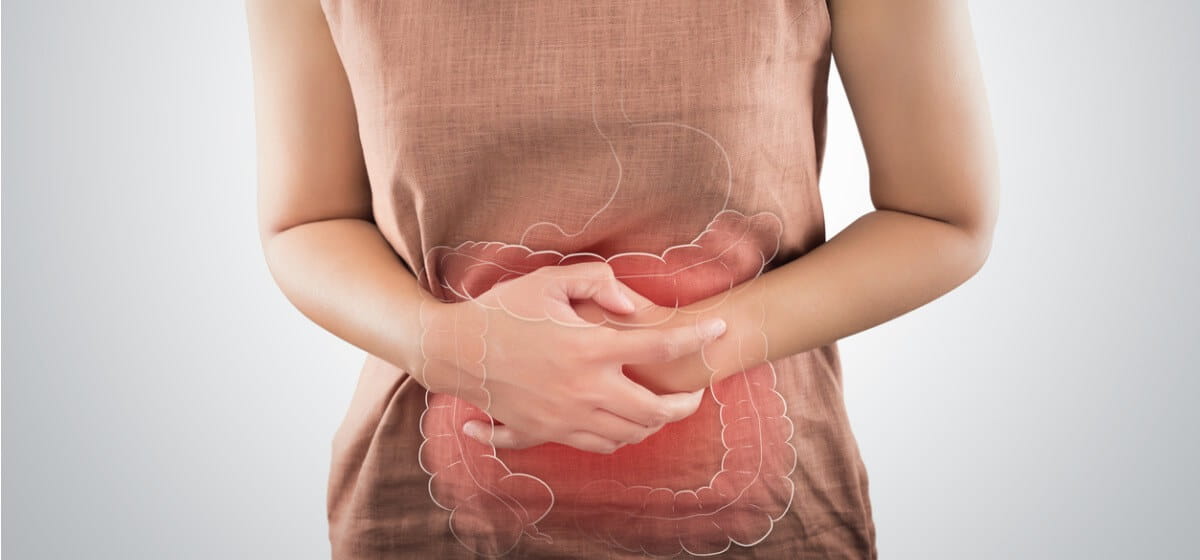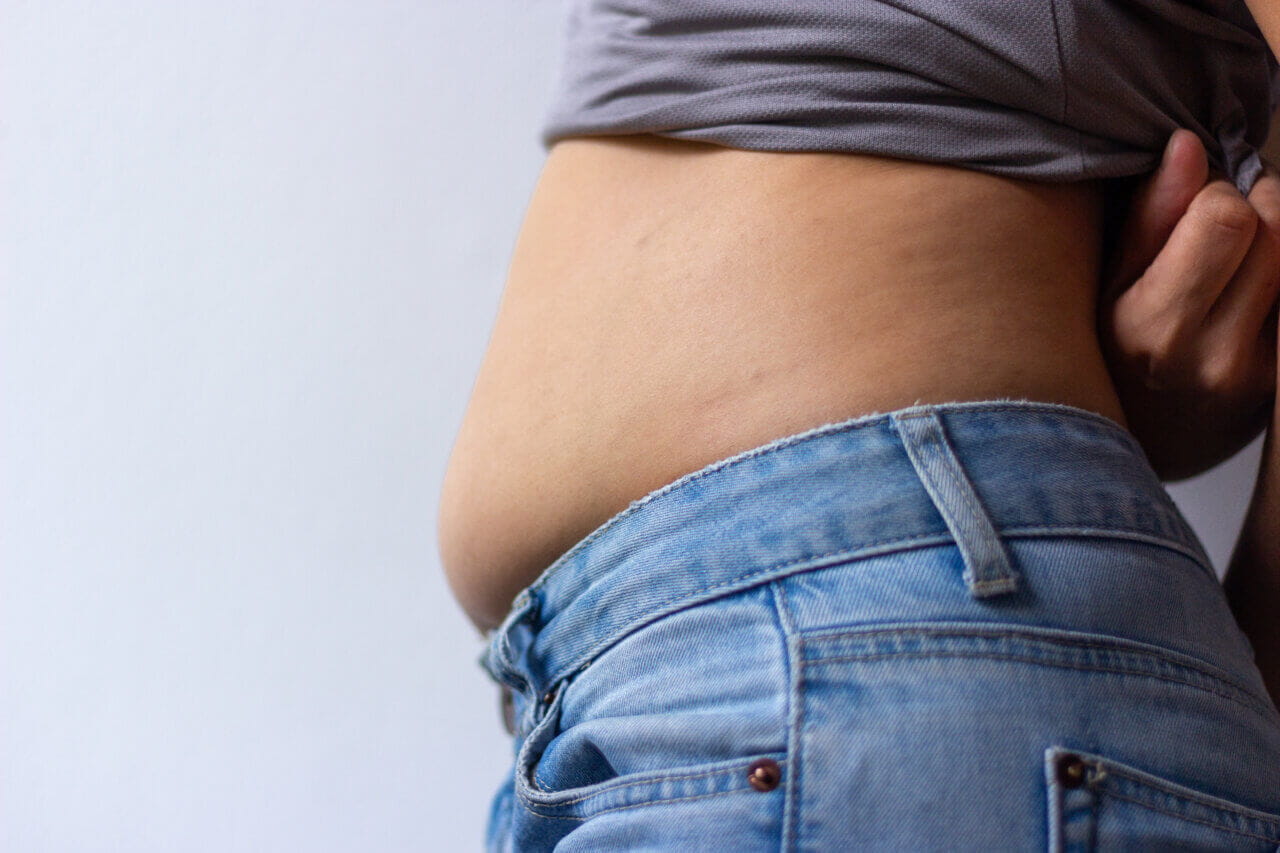What Is Bloating?

Bloating is the feeling of excessive abdominal fullness. It may or may not be accompanied by a visible increase in abdominal size called distension. In either case, bloating is an unpleasant sensation. It can be produced by excess gas or water in the digestive tract caused by a number of factors, and also by certain serious medical conditions.
Common Causes of Abdominal Bloating
In many cases, bloating is caused by what you eat and drink. Some of the foods and beverages most frequently associated with bloating include:
- Fatty foods
- Carbonated beverages
- Artificial sweeteners
- Salty foods (including most processed foods)
It is advisable to minimize these foods or eliminate them from your diet.
Other bloat-causing foods include:
- Dairy products (especially if you are lactose intolerant)
- Whole grains
- Beans and lentils
- Certain fruits like prunes pears, apricots, apples and peaches
- Raw cruciferous vegetables like onions, lettuce, cabbage, Brussels sprouts, cauliflower, broccoli and kale
These foods provide many nutritional benefits, and while you may need to reduce your intake, ideally you should not eliminate them from your meals. Try cutting out healthy but bloat-inducing foods briefly, then gradually add them back into your diet. This allows your body to adjust to them and may result in less bloating. It can also help you better identify which foods cause bloating for you.
Sometimes, how you eat can affect bloating. For example, you may swallow more air and feel bloated if you:
- Eat too fast
- Drink through a straw
- Chew gum or suck on candy
Simply eating too much in one sitting can cause the sensation of bloating as well.
How to Minimize Abdominal Bloating
Fortunately, there are a number of steps you can take to minimize or eliminate bloating. Try the following:
- Eat and drink more slowly
- Eat smaller portions
- Eliminate unhealthy bloat-producing foods from your diet
- Identify the healthy foods in your diet that can cause bloating and experiment to find the right balance for you
- Reduce salt intake
- Quit smoking, as it can cause gas and bloat
- Take a walk after eating to aid digestion
- Use over-the-counter gas-reducing remedies in moderation
Serious Medical Conditions That Cause Bloating
Bloating may also be caused by a number of health issues. They include:
- Irritable bowel syndrome (IBS)
- Ulcerative colitis, Crohn’s disease and other inflammatory bowel diseases
- Digestive problems due to issues like pancreatic insufficiency
- Celiac disease or other food allergy or intolerance
- Accumulation of fluid in the abdominal cavity from illnesses like liver disease, kidney failure or congestive heart failure
- Intestinal parasites
- A hernia
- Chronic heartburn
- Excessive weight gain
- Perforation of the gastrointestinal tract
- Eating disorders like anorexia nervosa or bulimia nervosa
- Stress, anxiety and depression
If you suspect you have one or more of these conditions, or simply have frequent bloating you can’t explain, it is important to talk with your doctor about causes and treatments.



